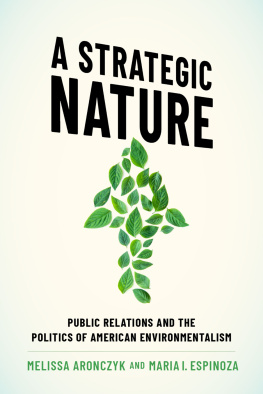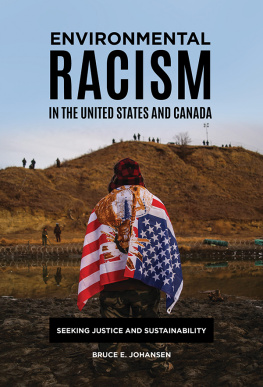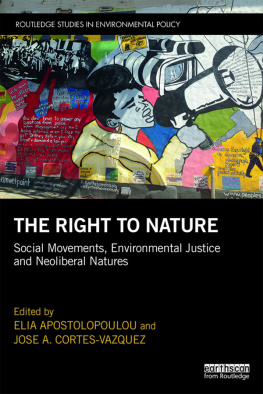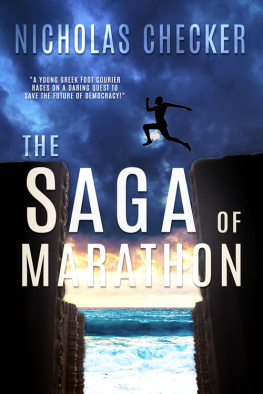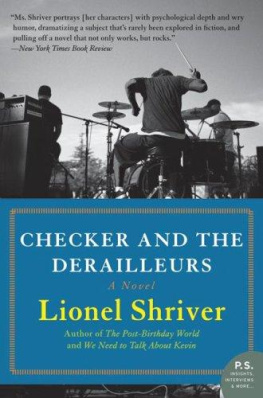Thank you for buying this ebook, published by NYU Press.
Sign up for our e-newsletters to receive information about forthcoming books, special discounts, and more!
Sign Up!
About NYU Press
A publisher of original scholarship since its founding in 1916, New York University Press Produces more than 100 new books each year, with a backlist of 3,000 titles in print. Working across the humanities and social sciences, NYU Press has award-winning lists in sociology, law, cultural and American studies, religion, American history, anthropology, politics, criminology, media and communication, literary studies, and psychology.
Polluted Promises
Polluted Promises
Environmental Racism and the Search for Justice in a Southern Town
Melissa Checker

NEW YORK UNIVERSITY PRESS
New York and London
www.nyupress.org
2005 by New York University
All rights reserved
www.nyupress.org
Library of Congress Cataloging-in-Publication Data
Checker, Melissa.
Polluted promises : environmental racism and the search for justice in
a southern town / Melissa Checker.
p. cm.
Includes bibliographical references and index.
ISBN-13: 978-0-8147-1657-1 (cloth : alk. paper)
ISBN-10: 0-8147-1657-1 (cloth : alk. paper)
ISBN-13: 978-0-8147-1658-8 (pbk. : alk. paper)
ISBN-10: 0-8147-1658-X (pbk. : alk. paper)
1. Environmental justiceGeorgiaAugusta. 2. Hazardous waste
sitesEnvironmental aspectsGeorgiaAugustaCase studies.
3. RacismUnited States. 4. African AmericansSocial conditions.
5. Social justiceUnited States. I. Title.
GE235.G4C46 2005
363.700975864dc22 2005006793
New York University Press books are printed on acid-free paper, and their binding materials are chosen for strength and durability.
Manufactured in the United States of America
c 10 9 8 7 6 5 4 3 2 1
p 10 9 8 7 6 5 4 3 2 1
This book is dedicated to the memory of Lillian Rosen Goldberg, to the memory of Reverend Robert Louis Oliver Jr. (who would have helped me write it), and to Reverend Charles Utley and Deacon Arthur Smith Jr., who have taught me more about faith, courage, and perseverance than I could ever put into words.
Acknowledgments
Exactly six years and two days before sitting down to write these acknowledgments, I arrived in Augusta, Georgia, to begin this project. Since then, the number of generous souls who have come forward to help has unceasingly astounded and inspired me. To all those who have reaffirmed my faith in all that is good, I can only begin to express my deepest gratitude.
Certainly, the activists and residents of Hyde Park made this project both possible and a labor of love. They not only welcomed me to the neighborhood and fed me barbeque but also allowed me to become part of their lives and patiently encouraged me throughout the projects long years. In particular, with his characteristic goodwill and courage, Charles Utley took a chance on an unknown outsider, and he continues to offer his enthusiasm, wisdom, support, and warm heart. Arthur Smith welcomed me to Hyde Park with open arms; I am fortunate to be among those who benefit from his unbridled generosity and friendship. Irene Sapp and Deborah Jackson accepted a stranger into their workplace and put up with my endless questions. Vanessa Sapp showed me the ropes in Hyde Park. Her daughters, Vanesha and Ashley, both befriended and inspired me, and her father, Ernest Sapp, made me chitterlings. Terence Dicks provided me with a more radical vision of Augusta activism, as well as his friendship. Melvin Stewart and Bobby Truitt also lent me their valuable insights and good-heartedness. Brenda Utley, Robert and Viola Striggles, David Jackson, and Johnnie Mae Brown warmly offered information, contacts, and consideration.
Toward the end of this project, several angels descended to take it under their wings, and for the hours they have spent with it I extend my deepest and eternal thanks. Laura Helper-Ferris (who could not be more aptly named) cared for the manuscript as if it were her own, helping it grow by leaps and bounds through her magical blend of intelligent commentary and kind encouragement. I cannot thank her enough for enthusiastically coming through in crunch after crunch and for being my good friend. Michael Mosier, Esq., offered his time and his legal expertise, saving a strangers skin. Maryl Levine came at the beginning, with her wonderful photographic eye, and then again at the finish, with lustrous cover ideas. My editor at NYU Press, Ilene Kalish, ventured out on several limbs for a project she believed in, and Frank Miller stepped up to the plate at the last minute. Katherine Lambert-Pennington, Jennifer Prough, and Greg Milner offered editing expertise and condiments right up to the bitter end, and Jane and Stan Herring were on hand for last-minute bolstering.
At the projects beginning, there was Owen Lynch, to whom I am forever grateful for his intelligent comments and consistent support, mentoring, generosity, patience, and overall hand-holding. I also warmly thank Constance Sutton for her intellectual guidance and her consistently abundant moral support. Steven Gregory pointed me to the topic of environmental justice back in 1995 and offered astute advice. Karen Blu was exceedingly generous with her encouragement, time, and incisive input, as was Bonnie McCay.
This project also owes much to Maggie Fishman and Jennifer Patico, who have edited reams of pages, listened to endless whining, and offered endless patience in return. Robert Brimhall, cartographer extraordinaire, donated ample time to this cause. I am also indebted to Julie Rogers, who is largely responsible for making appendix B happen, and Rebecca Puckett, who did some of the dirty work. Connie Tucker spent many hours making sure I got it right. Steve Albert, Peter Zablieskis, Jessica Winegar, Wendy Leynse, Shalini Shankar, and anonymous reviewers also contributed greatly to the editing process.
William McCracken, Lisa Milot, Alyssa Senzel, and Josh Watson offered valuable (and greatly needed) legal help. Richard Moore, Gordon Blaker, Hameed Malik, Lillian Wan, Doris Bradshaw, Zack Lyde, Evell Ballard, Juanita Burney, Frank Rumph, and Gary Grant were also good enough to support and enhance this project. Augusta State Universitys Robert Johnston, Kim Davies, Ernestine Thompson, and the Moral Maximalists have been generous collaborators. Brad Owens and Julee Bode welcomed me to another part of Augusta and took the time to get to know Hyde Park. In advance, I thank Jeff Howe and Stephanie Foxman for helping to launch this project in a very public way.
A National Science Foundation Doctoral Dissertation Improvement Award (no. 9806988) funded my field research. A New York University Deans Dissertation Award and a Morris K. Udall Environmental Policy Foundation Dissertation Fellowship enabled me initially to write up that research.
Last, but certainly not least, I thank my parents, Ruth and Armand, and my sisters and best friends, Alison and Jill, all of whom have worried with me over every obstacle and celebrated every victory, and who share in every success. Finally, I am so grateful to James R. Garfield, who continues to pat my hair (from near and far) when I want to tear it out.
This book concerns a legal case, Jordan, et al. v. Southern Wood, et al. At the time of this writing, claims are still pending that preclude the case from being fully resolved by a court of law. In the summer of 2003, portions of a draft manuscript were sent to the attorney representing the defendant in this lawsuit, who pointed to some additional research that has been valuable to this manuscript. At the same time, the books intentions were questioned, and significant concerns over its biases were expressed. As a result, the following statement will clarify this books intent:
Next page

